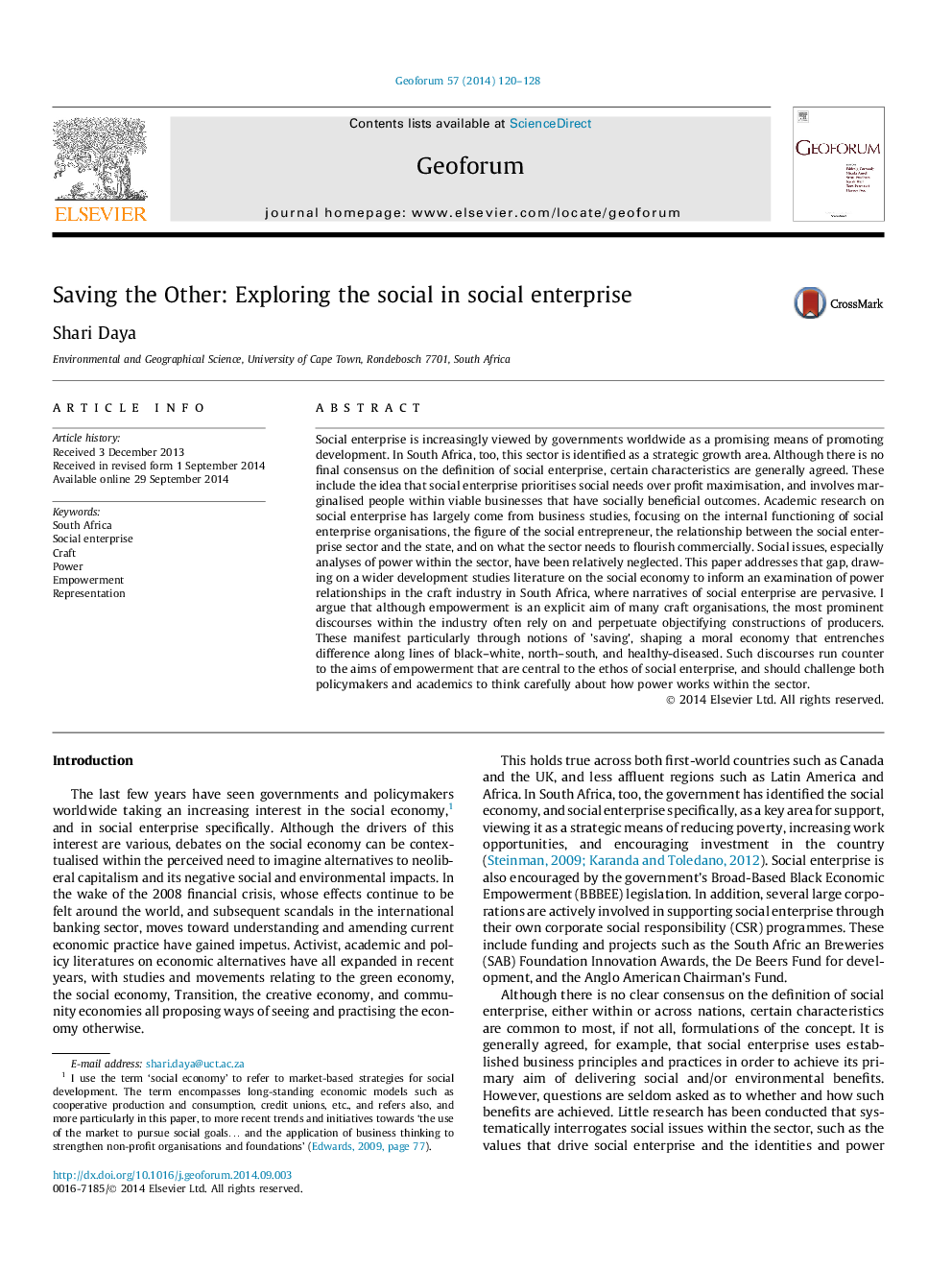| Article ID | Journal | Published Year | Pages | File Type |
|---|---|---|---|---|
| 5073943 | Geoforum | 2014 | 9 Pages |
â¢I examine power relationships in the social enterprise craft sector in South Africa.â¢Discourses in the industry often objectify producers within social enterprises.â¢Such objectification is manifested through narratives of 'saving' craft producers.
Social enterprise is increasingly viewed by governments worldwide as a promising means of promoting development. In South Africa, too, this sector is identified as a strategic growth area. Although there is no final consensus on the definition of social enterprise, certain characteristics are generally agreed. These include the idea that social enterprise prioritises social needs over profit maximisation, and involves marginalised people within viable businesses that have socially beneficial outcomes. Academic research on social enterprise has largely come from business studies, focusing on the internal functioning of social enterprise organisations, the figure of the social entrepreneur, the relationship between the social enterprise sector and the state, and on what the sector needs to flourish commercially. Social issues, especially analyses of power within the sector, have been relatively neglected. This paper addresses that gap, drawing on a wider development studies literature on the social economy to inform an examination of power relationships in the craft industry in South Africa, where narratives of social enterprise are pervasive. I argue that although empowerment is an explicit aim of many craft organisations, the most prominent discourses within the industry often rely on and perpetuate objectifying constructions of producers. These manifest particularly through notions of 'saving', shaping a moral economy that entrenches difference along lines of black-white, north-south, and healthy-diseased. Such discourses run counter to the aims of empowerment that are central to the ethos of social enterprise, and should challenge both policymakers and academics to think carefully about how power works within the sector.
